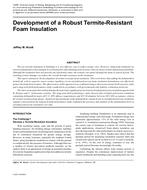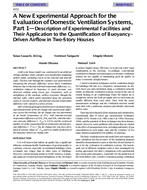This paper summarizes the results of a research program intended to build an understanding of restaurant energy performance upon an empirical foundation. This discussion provides some background for the effort, brief descriptions of the facilities selected for study, the methods of measurement, the empirical findings, an overview of conservation opportunities revealed, and general conclusions. Seven monitoring sites were carefully selected to represent the most common categories of food service by the National Restaurant Association. A microcomputer-based data acquisition was designed and implemented to acquire data at 15-minute intervals on end-use energy consumption, interior temperatures, and external climatic conditions for a one-year monitoring period. The project archived over 87% of the available data, which have been converted into several formats for dissemination. Restaurants are found to be very intensive users of energy due largely to the frequent use of food preparation equipment and the high ventilation requirements. Over a third of energy is consumed for food preparation, slightly less than a third is used for heating, ventilating and air conditioning, and the remainder for sanitation, lighting, and refrigeration. The data set permits detailed examinations of energy use cause- and- effect relationships and energy conservation potential.
Units: SI
Citation: Symposium, ASHRAE Transactions, 1986, vol. 92, pt. 2B, Portland, OR
Product Details
- Published:
- 1986
- Number of Pages:
- 22
- File Size:
- 1 file , 1.5 MB
- Product Code(s):
- D-PO-86-07-4


